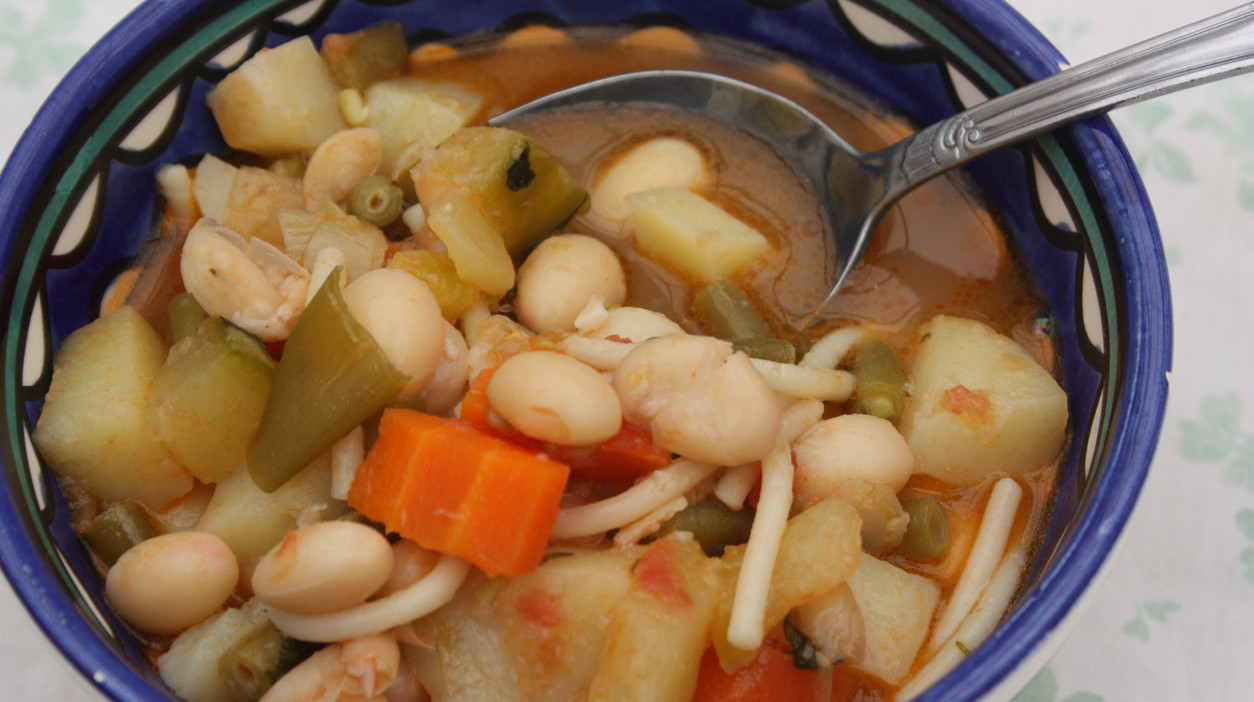School Project Reveals That Minestrone Might Combat Malaria
It's still too early to say for sure, but a bunch of 4- to 11-year-olds in London might have been instrumental to a major medical breakthrough.
Malaria, a disease responsible for the deaths of almost 500,000 people per year, is contracted via a parasite transmitted from mosquito bites. Antimalarial drug resistance is a consistent problem, so modern science is always fighting to stay a step ahead in treatment options. Elementary school students bringing test tubes of soup to class for a science project might not seem the likeliest candidates for aiding in the fight against malaria, but when Eden Primary parent Jake Baum, a cell biologist, wanted to teach the kids about medical research and lab testing, he figured soup cures—a classic homemade method of curing what ails ya—were a good way to separate the science from the "hocus-pocus."
As Baum told NPR, "It was not the plan to discover anything." But sure enough, five soup samples, spun through a centrifuge to separate different substances and then tested for their resistance to the malaria-spreading parasite, did turn out to block transmission of the parasite by as much as 50%. Minestrone recipes tended to have a particularly strong effect, for reasons unknown; no research is currently underway to continue this soup study, though Baum noted he'd love to see it performed globally.
The results were nevertheless published in the Archives of Disease in Childhood this November, with the children all listed as authors. Even if scientists never end up developing an antimalarial superbroth, Baum has chosen to see the positive side: "Every kid can say they've had their first scientific paper."
